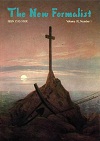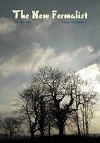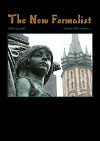Revolutionary II
[After “The Revolutionary” by D.H.Lawrence]
Yes, I see them standing there
With white, metallic, tin-slit lips,
Insisting that they care—they care
Aggressively, with hands on hips!
Caryatids with such a task
To carry heaven on their head,
Their face a metal ideal mask,
Fixed and pale and dull as lead.
They yearn, aspire, and seek above,
Ignoring all beneath their feet
And call their ideal vision “love”
When it is merely self-deceit.
They know precisely what “should be”,
What is “proper” “good” and “right”
And since their only skill’s to see
They’re planning to out-law the night.
I see them here as clear as you
Saw them eighty years ago,
They have not changed, they will not do
A thing to move, they cannot flow
And ripple with a living pulse
Of energy, changing course,
Bounding, leaping true and false,
Instinctive as a wild horse.
I see them holding up their sky
Of stoney heaven, painted blue,
But when it cracks and pieces fly
They’ll envy Lords of Hell like you.
The Dark Ray
In the heat of sparkling days we loved to burst
The blown up paper-bags of clouds afloat,
And shred them in the ribboned pools of light:
Among the rocks we did our very worst.
All summer long we wallowed in our sport,
Exploding mirrored clouds with body-bombs;
Well buoyed upon the ample seas of time,
We never thought we ever could be caught;
Until, I glimpsed below, that shocking ray,
A massive arrow head of poison black,
Slid fast below our treading, tensing soles;
I still recoil to think of it today.
And every day I see it sliding fast,
In gulfs of dreams that make me swim awake,
And in the mirrored pools of tv screens,
The ray has come to stay—will not swim past.
The Common Bond
[On the tsunami of 2005]
We seem to be so far away
From all these sea-born floods of death;
Sighing, giving, we cry and pray
As we watch scenes that catch the breath.
But all of us, in varying ways,
Know death may come to us like this,
In beds, on roads, or tranquil bays—
A sudden flood, and no last kiss.
Tarn
That summer, floating on the mountain lake,
Dark as the tarn in Poe’s tale of the Ushers,
Was an initiation into reflection. Lying prone on the air-bed,
Looking into your face, you could see you were nothing
But a skied image on the water, the halo
Of gums and wattles around your head, a fragrant
Wreath sent up from Hades. The lake was a sermon
On the truth that the way up and way down are the same.
When a goshawk, tailing finches, passed, looking down
Into the tarnished mirror, you could see precisely
How high he was. The sun you noticed was dependent
Upon a cool-quivering void to cherish its fire.
Upward staring water-lilies found reflections in cumulus
Blooming in the deep blue. At evening
The swallows fell from the west and tore
At their doubles with thirsty beaks. And once,
As the full moon rose from the eastern hills,
I watched her twin wash her sun-flush in the shallows
And grow ever brighter as the dark water deepened.
Broken Loose
She doesn’t care, she doesn’t care, old heart.
But ox-dumb heart is thick and won’t be told.
Reason frowned and argued from the start:
Her skin is fine bone china, and you’re old.
But ox-thick heart is nothing if not bold,
And paws the ground and snorts and doesn’t care,
And foolishly refuses to be told.
Stay in that pen, you beast, and learn despair!
Reason ruled as the conference went to air.
Six weeks unseen, I watched the screen in dread
My hope she’d dress in grey with tied-back hair.
But her black-hair was down; her top, pink-red!
That’s when my ox broke loose, now I can’t stop
Him running wild in reason’s china shop.



